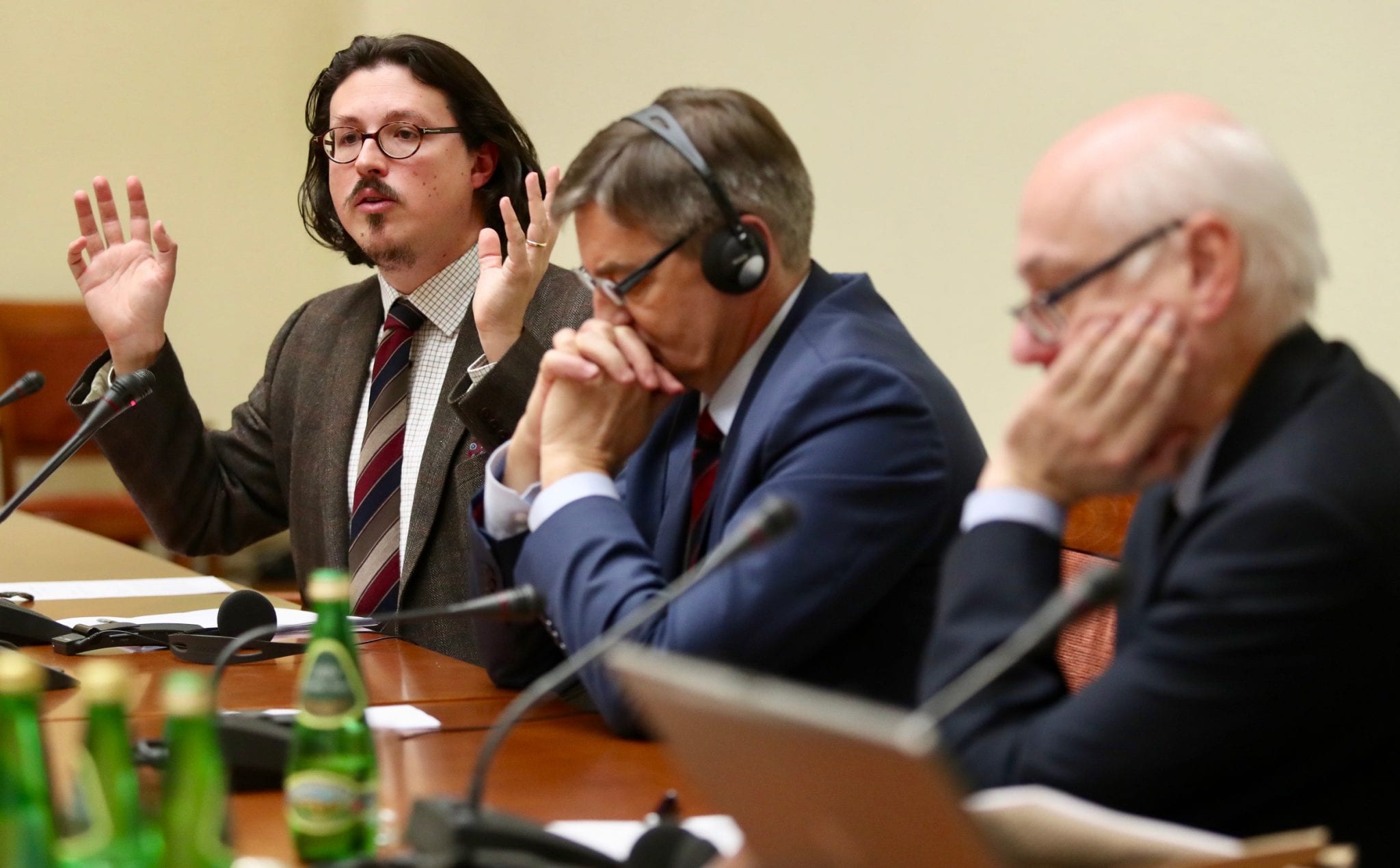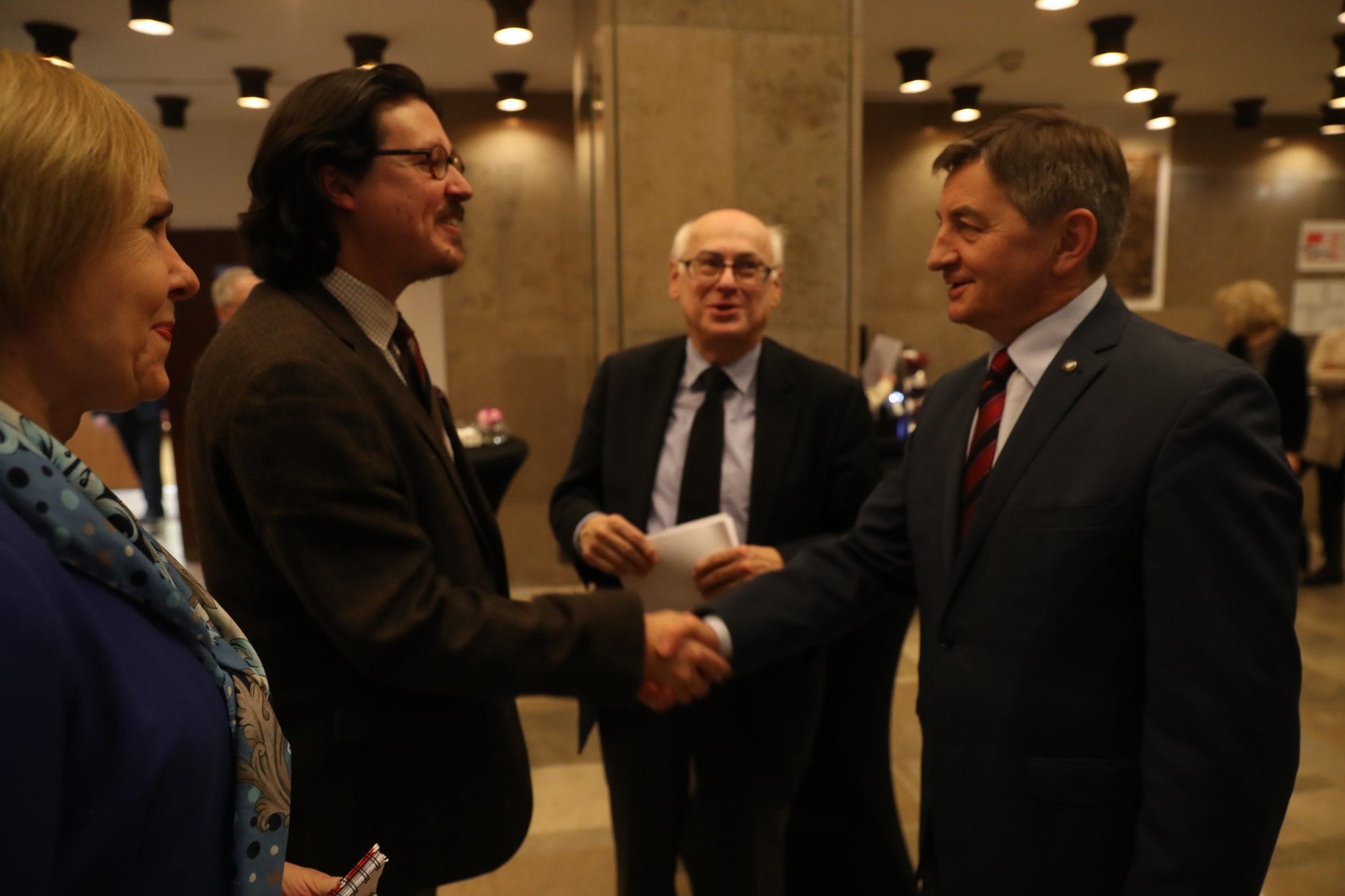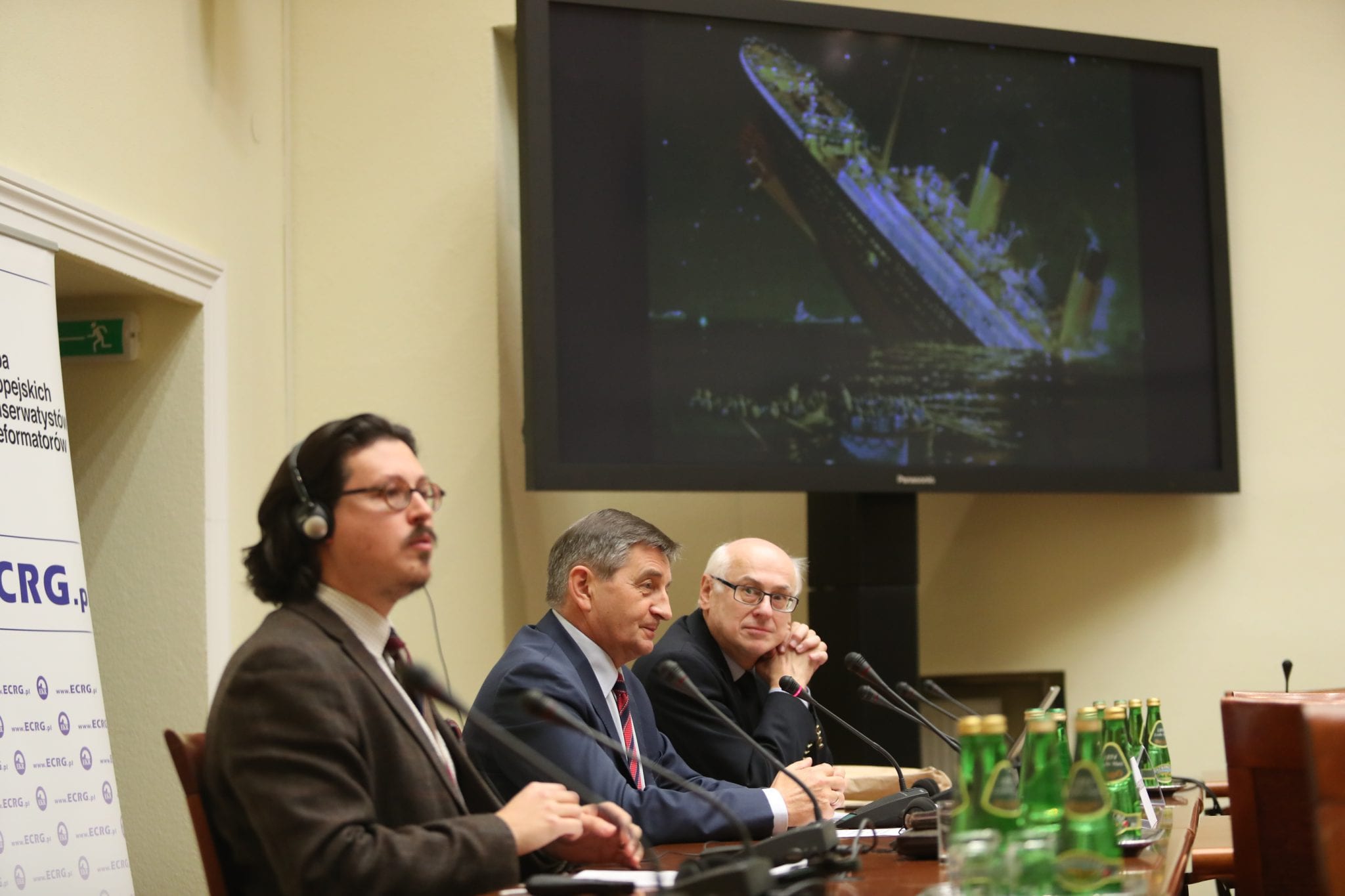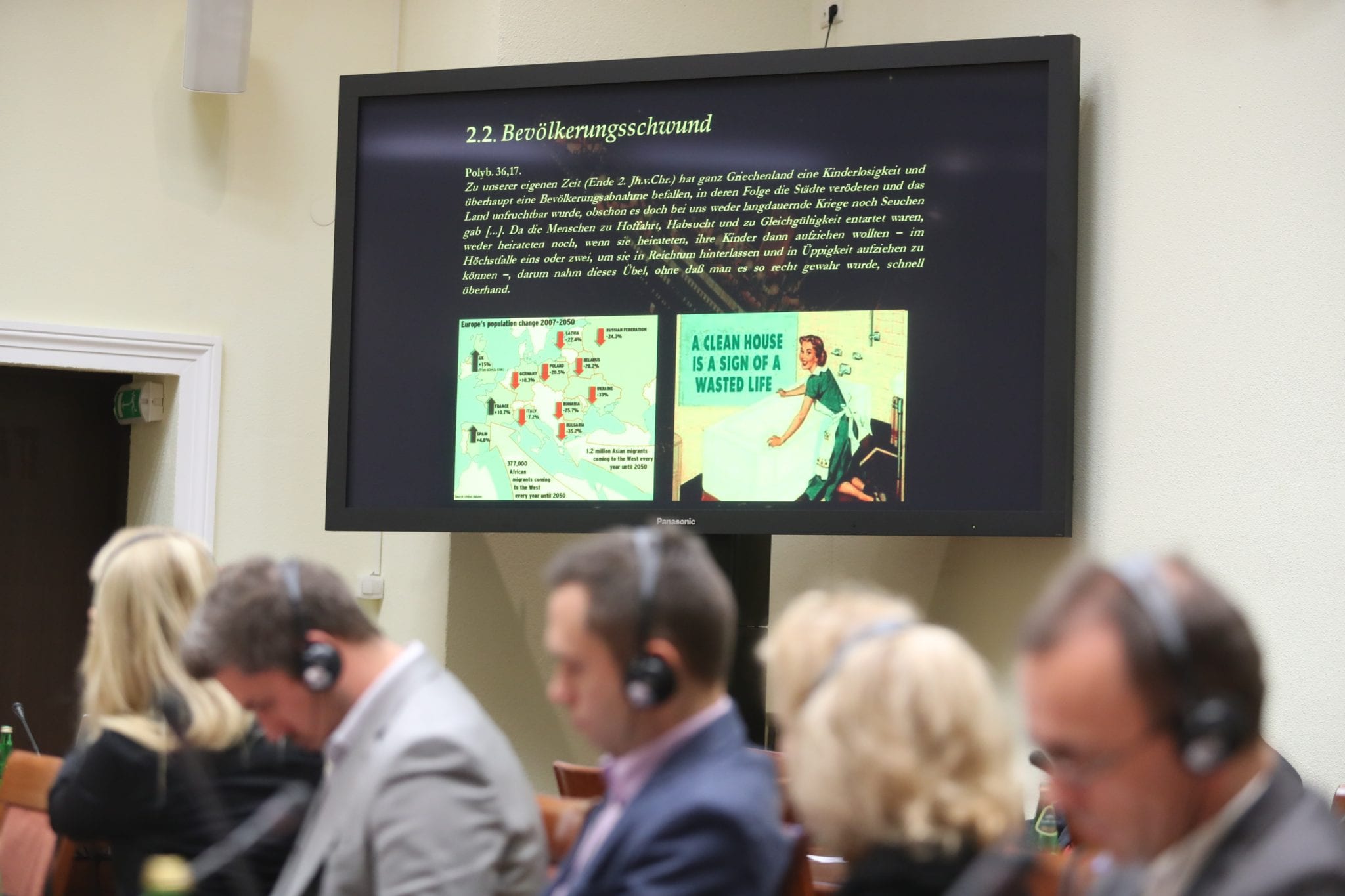- What Professor David Englels presented is close to what PiS is currently implementing, to what we have been debating for many years - the program we created at the turn of 2013 and 2014. Poland alone or even the Visegrad Group is not enough to become an antidote to all the problems of the Union. However, it is our sacred duty to remind where the foundations of the EU lie, to renew and strengthen this institution", said Marek Kuchciński, Speaker of the Sejm, during the discussion "The future of the European Union through the prism of past experiences".
Professor Engels is a Belgian historian specializing in the history of religion in ancient Rome. He defined 12 crisis areas of the European Union: immigration, depopulation of EU countries, family crisis, fear of domination by foreign element, religion (decline of spiritual elements of cultural identity, globalization, financial markets, threats to peace, "bread and games" policy, elite democracy, populism, demand for order (state system loses credibility and citizen does not trust institutions).
He also said that the Visegrad Group could prove to be salutary for the EU through its fidelity to Christian traditions, close cooperation within the group. It is a response to the proposals of Western Europe, which in turn wants to exclude this part of Europe from the media.
Polish politics must distinguish between criticism and involvement in European politics. We must not allow Brussels to interfere in our internal affairs. Independence and self-reliance must be preserved.
There should be constructive cooperation, pushing for greater representation in the EU. Poland can be a solid anchor of Europe.
The discussion took place in the Sejm on 17 November. It was co-organized by the European Conservatives and Reformists Group. Prof. Zdzisław Krasnodębski, MEP, also took part in it.
Photo: Pawel Kula
MO text






